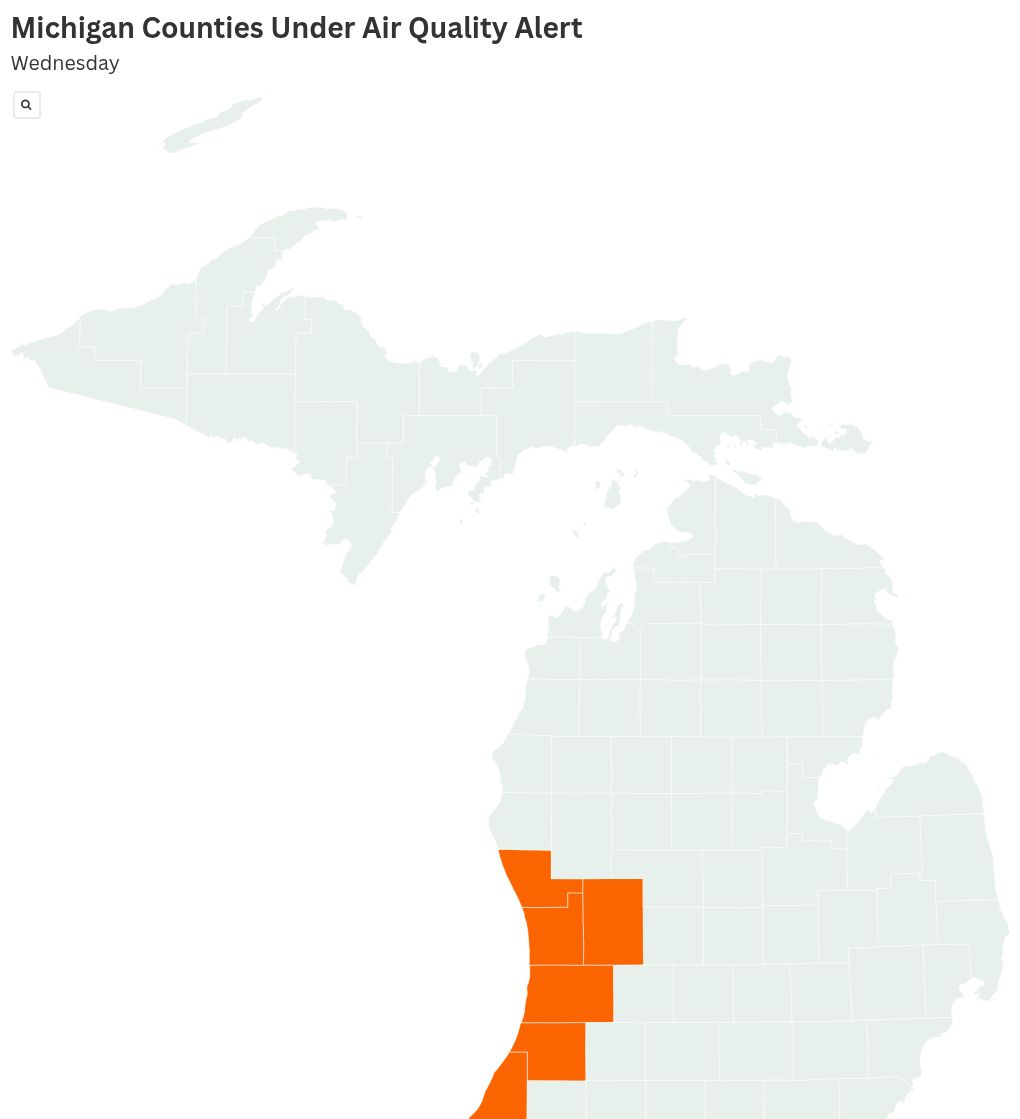More than 1.5 million residents across six Michigan counties have been urged to avoid refueling vehicles and limit other activities that contribute to ozone pollution in an air quality advisory issued for Wednesday.
Why It Matters
Experts caution that poor air quality poses increased health risks for vulnerable groups, including the elderly, children and those with respiratory conditions.
What To Know
The Michigan Department of Environment, Great Lakes, and Energy (EGLE) issued the advisory after forecasting elevated ozone levels, with air quality expected to reach the “Unhealthy for Sensitive Groups” threshold in Allegan, Kent, Muskegon, Ottawa, Berrien and Van Buren counties.
The advisory was triggered by a combination of high temperatures (in the 70s and 80s degrees Fahrenheit), ample sunlight and winds conducive to ozone development—compounded by wildfire smoke from Canada lingering over the region.

EGLE and the National Weather Service have urged residents to postpone refueling vehicles or topping off gas tanks as this activity contributes to ozone formation.
Drivers in affected counties were asked to consider telecommuting, combining errands or using alternative modes of transport, such as walking or cycling. Additional recommendations included avoiding gasoline-powered lawn equipment and using water-based paints.
“It is recommended that, when possible, you avoid strenuous outdoor activities, especially those with respiratory diseases such as asthma,” the NWS alert said.
What People Are Saying
AccuWeather meteorologist Brandon Buckingham previously told Newsweek: “Ozone is a secondary pollutant, meaning it’s not emitted directly from sources, but is formed through chemical reactions. These reactions require sunlight and higher temperatures, making warmer months more prone to ozone formation. When air is stagnant, pollutants don’t get dispersed, allowing ozone to build up to unhealthy levels.
“Ozone pollution is often more severe in urban areas where there are higher concentrations of pollutants from sources like cars, power plants, and industrial activities.”
Jonathan Grigg, a professor of pediatric respiratory and environmental medicine at Queen Mary University of London, previously told Newsweek that there were “very clear links” between inhaling particles and earlier death from both respiratory and cardiovascular diseases.
He added that conditions such as asthma are exacerbated by exposure to air pollution.
The Michigan Department of Environment, Great Lakes, and Energy said in a forecast: “Partly cloudy conditions look to persist through the rest of the week, but temperatures hang around the 70s to 80s. Air quality will hang around the Good to Moderate range after Wednesday.”
What Happens Next
The National Weather Service issues regular forecast updates on its website.
The post 1.5 Million Drivers Told to Avoid Gas Stations appeared first on Newsweek.




